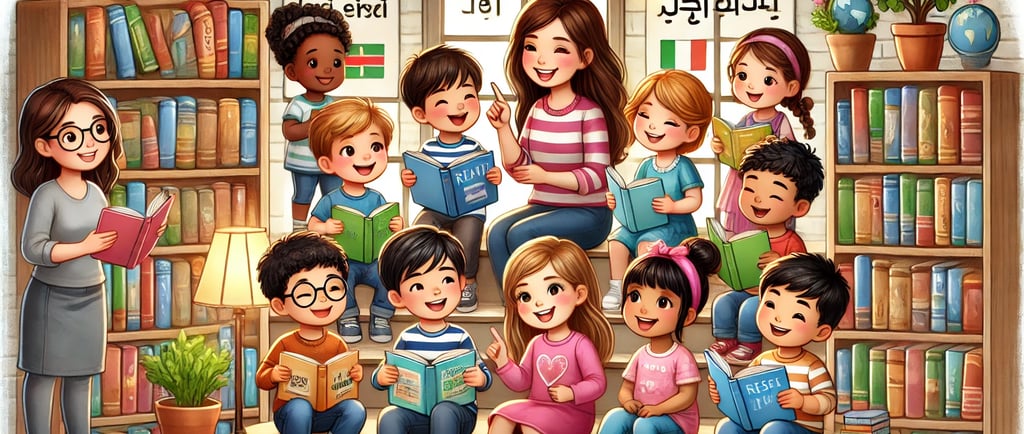How Can We Promote the Reading Skills of Bilingual and Multilingual Children?
The habit of reading promotes creativity, imagination, language skills and the ability to concentrate. It also gives us access to distant worlds and fascinating cultures. Therefore, books should be present in our daily lives and, if we belong to a multicultural or multilingual family, they should be available in all the languages used at home.
FAMILYLANGUAGES ACQUISITIONPARENTINGEDUCATIONMULTILINGUALISM
iLanguage Team
3/10/20233 min read


Books enrich our vocabulary and our general culture, taking us to the most extraordinary adventures contained in interesting stories and tales. That is why they are an indispensable element in every living room and children's room, because if we teach our children to read from an early age, they will grow up with this wonderful habit that will enrich their lives in many ways.
For multilingual children, books provide support in establishing a connection with the culture of the country where the minority language is spoken. Through books, they can learn about elements or symbols representative of that culture and thus develop a stronger emotional bond with that language, which translates into motivation to learn or practice that additional language.
If children are familiar with elements typical of a region, such as a dish, a dance or a festival, their sense of belonging when travelling to that country will be even greater, since their integration depends not only on mastery of the language but also on knowledge of the cultural elements typical of that social environment.
That is why we recommend buying children's stories that contain this type of element, this type of "vocabulary" typical of the culture of a particular country or language. That is, instead of buying the tenth version of "Snow White", it is better to look for original titles from that country and with elements typical of that culture. By buying books by "local" authors from that region, you have the opportunity to see the world through the eyes of people originally from that region, in this case the author. In addition, depending on the subject of the book, expressions typical of the country or culture are used.
Books are a great window to education in every way, reading is a habit that should be encouraged on a daily basis if possible. If you speak a minority language with your child, reading about different topics will help him expand his vocabulary, because as a mother, the language we use with our children is sometimes very repetitive, such as: "Have you done your homework, brushed your teeth, combed your hair, are you coming to eat or is the food ready, etc." And so sometimes language promotion becomes monotonous because the routine overwhelms us and leaves no time for anything. That is why it is best to create fixed times and spaces that also become part of the routine and give yourself the opportunity to take your child every day to that exquisite corner that is the adventure of knowledge, learning and discovery in all his languages.
A reader is not born, but made. Interest in reading should be encouraged from an early age, some parents even start reading before the child is born. Personally, I don't have a favorite time to start, it's an individual decision, but I am convinced that the earlier the better. And if you haven't started yet: it's never too late! At first it may be difficult to find the right time to read, the right place, etc., but with perseverance and dedication it will become a wonderful family habit.
If your children are multilingual, help them to seek information by reading to them from a young age, if possible in all the languages your child is learning. For example, if the mother speaks Spanish and the children always take care of the pet with her, the children will know the vocabulary for this activity better in Spanish than in their other language. If the father always speaks German and they always do carpentry projects with him, the corresponding vocabulary will be more consolidated in German than in the other language. And since it is not always possible to change the activities done with mom or dad, you can choose books on these or other varied topics in all the languages present at home, the possibilities are endless!
If your children are multilingual, help them open the door of your home to books and make a place for them, not only on the bookshelf but also in your everyday life – it's worth it!
We'll read each other soon! 😉


